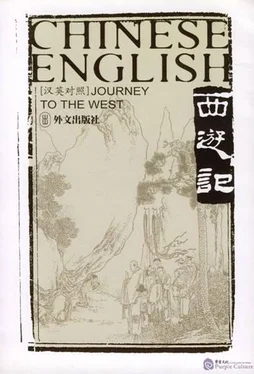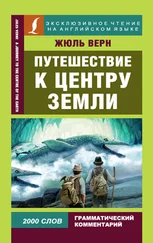Square ponds and round pools,
Spring water like fragments of jade,
Golden heaps of flowers.
The North wind bursts the white plum blossom open.
When spring comes, it touches the crab-apple with red.
It can be rightly called the most splendid view on Earth,
The finest garden in the West.
Before Monkey had time to take all of this in he saw another gate. When he pushed it open he saw
Vegetables for each of the four seasons-
Spinach, celery, beetroot, ginger, and kelp,
Bamboo shoots, sweet potato, melons, oblong gourd and wild rice stem,
Onions, garlic, coriander, scallion and shallots,
Lettuce, artemisia, and bitter alisma,
Gourds and aubergines that must be planted,
Rutabaga, turnips, docks,
Red amaranth, green cabbage, and purple mustard-plant.
“So they're Taoists who grow their own food,” thought Monkey, smiling to himself. When he had crossed the vegetable garden he saw yet another gate, and when he opened it there was a huge tree in front of him with fragrant branches and shade-giving green leaves shaped rather like those of plantains. The tree was about a thousand feet high, and its trunk was some seventy or eighty feet round. Monkey leant against it and looked up, and on a branch that was pointing South he saw a manfruit, which really did look just like a newborn child. The stem came from its bottom, and as it hung from the branch its hands and feet waved wildly around and it shook its head. Monkey was thoroughly delighted, and he thought in admiration, “What a splendid thing-a real rarity, a real rarity.” And with that thought he went shooting up the tree.
Now there is nothing that monkeys are better at than climbing trees to steal fruit, and one blow from the golden rod sent the manfruit tumbling down. He jumped down to fetch it, but it was nowhere to be seen. He searched the grass all around, but could find not a trace of it. “That's odd,” he thought, “very odd indeed. It must be able to use its feet-but even then it won't be able to get past the wall. No, I've got it. The local deity of this garden has hidden it away to stop me stealing it.”
He made some finger magic and uttered the sacred sound “ Om ,” which forced the garden deity to come forward, bow and say, “You summoned me, Great Sage. What are your orders?”
“Surely you know,” Monkey said, “that I am the most famous criminal on earth. When I stole the sacred peaches, the imperial wine, and the elixir of immortality some years ago, nobody dared to try and take a cut. How comes it that when I take some fruit today you pinch my very first one? This fruit grows on a tree, and the birds of the air must have their share of it, so what harm will be done if I eat one? Why did you snatch it the moment it fell down?”
“Great Sage,” the deity replied, “don't be angry with me. These treasures belong to the Immortals of the Earth, and I am a ghost Immortal, so I would never dare take one. I've never even had the good fortune to smell one.”
“If you didn't take it, why did it disappear the moment I knocked it down from the tree?” Monkey asked.
“You may know that these treasures give eternal life, Great Sage,” the deity replied, “but you don't know about their origin.”
“Where do they come from, then?” Monkey asked.
“These treasures,” the deity replied, “take three thousand years to blossom, another three thousand to form, and three thousand more to ripen. In almost ten thousand years only thirty grow. Anyone lucky enough to smell one will live for three hundred and sixty years, and if you eat one you will live to be forty-seven thousand. These fruit fear only the Five Elements.”
“What do you mean, 'fear only the Five Elements?'“ Monkey asked.
“If they meet metal,” the deity said, “they fall; if they meet wood they rot; if they meet water they dissolve; if they meet fire they are burnt; and if they meet earth they go into it. If you tap them you have to use a golden rod, otherwise they won't drop; and when you knock them down you must catch them in a bowl padded with silk handkerchiefs. If they come in contact with wooden utensils they rot, and even if you eat one it won't make you live any longer. When you eat them you must do so off porcelain, and they should be cooked in clear water. If they come in contact with fire they become charred and useless, and they go into any earth they touch. When you knocked one to the ground just now it went straight in, and as the earth here will now live for forty-seven thousand years you wouldn't be able to make any impression on it even with a steel drill: it's much harder than wrought iron. But if a man eats one he wins long life. Try hitting the ground if you don't believe me.” Monkey raised his gold-ringed cudgel and brought it down on the ground. There was a loud noise as the cudgel sprang back. The ground was unmarked.
“So you're right,” said Monkey, “you're right. This cudgel of mine can smash rocks to powder and even leave its mark on wrought iron, but this time it did no damage at all. This means that I was wrong to blame you. You may go back now.” At this the local deity went back to his shrine.
The Great Sage now had a plan. He climbed the tree and then held the rod in one hand while he undid the lapel of his cloth tunic and made it into a kind of pouch. He pushed the leaves and branches aside and knocked down three manfruits, which he caught in his tunic. He jumped out of the tree and went straight to the kitchen, where a smiling Pig asked him if he had got any. “This is the stuff, isn't it?” said Monkey. “I was able to get some. We mustn't leave Friar Sand in the dark, so give him a shout.”
“Come here, Friar Sand,” Pig called, waving his hand. Friar Sand put the luggage down, hurried into the kitchen, and asked, “Why did you call me?”
“Do you know what these are?” Monkey asked, opening his tunic. “Manfruits,” said Friar Sand as soon as he saw them. “Good,” said Monkey, “you know what they are. Where have you eaten them?”
“I've never eaten them,” Friar Sand replied, “but when I was the Curtain-lifting General in the old days I used to escort the imperial carriage to the Peach Banquets, and I saw some that Immortals from over the seas brought as birthday presents for the Queen Mother. I've certainly seen them, but I've never tasted one. Please give me a bit to try.”
“No need to ask,” said Monkey. “We're having one each.”
So each of them had one manfruit to eat. Pig had both an enormous appetite and an enormous mouth, and had, moreover, been suffering pangs of hunger ever since hearing the Taoist boys eating. So the moment he saw the fruit he grabbed one, opened his mouth, and gulped it down whole; then he put on an innocent expression and shamelessly asked the other two what they were eating. “Manfruit,” Friar Sand replied.
“What does it taste like?” Pig asked.
“Ignore him, Friar Sand,” said Monkey. “He's already eaten his, and he's no business to ask you.”
“Brother,” said Pig, “I ate mine too fast. I didn't nibble it delicately and taste the flavour like you two. I don't even know if it had a stone or not as I gulped it straight down. You should finish what you've started: you've whetted my appetite, so you ought to get me another to eat slowly.”
“You're never satisfied,” Monkey replied. “These things aren't like rice or flour-you can't go stuffing yourself full of them. Only thirty grow in every ten thousand years, so we can think ourselves very lucky indeed to have a whole one each. Come off it, Pig, you've had enough.” He got up, slipped into the Taoist boys' room with the golden rod, and put it back without letting himself be seen through the window. He paid no more attention to Pig, who went on grumbling.
Читать дальше









